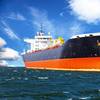The list of all ships dismantled around the world in 2016, which the NGO Shipbreaking Platform has compiled and analysed, shows no improvements of the shipping industry’s management of its end-of-life vessels.
Far from it: the Platform today releases data that indicate an increase in the number of ships sold for polluting and unsafe shipbreaking on the beaches of South Asia.
In 2016, a total of 668 vessels were broken on tidal beaches, that is as much as 87% of all tonnage dismantled globally.
“The shipping industry is nowhere close to ensuring sustainable ship recycling practices. Last year, we saw not only an increase in the market share for dangerous and dirty shipbreaking, but also a record-breaking number of EU-owned vessels on the South Asian beaches. A jaw-dropping 84% of all European end-of-life ships ended up in either India, Pakistan or Bangladesh. Beaching yards are not only well known for their failure to respect international environmental protection standards, but also for their disrespect of fundamental labour rights and international waste trade law,” says Patrizia Heidegger, Executive Director of the Platform.
A higher number of ships beached means that workers, the environment and local communities in South Asia are exposed to ever increased hardship.
2016 saw the worst catastrophe in the history of the industry: on 1 November, at least 28 workers were killed instantly and more than 50 injured when an explosion and a massive fire shook a tanker beached in Gadani, Pakistan.
The death toll in the Bangladeshi yards, which the Platform was able to document, reached 22 in 2016, with another 29 workers having suffered serious injuries. Whilst accident records in Indian shipbreaking yards are kept a secret, the Platform was informed of at least two fatal deaths in Alang.














